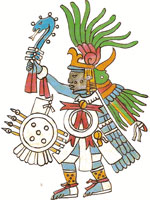

Helping socialist and anti-colonial movements largely benefitted the Soviet Union and it was in a perfect place to do so. The problem is that, especially post-Stalin, it did not treat them as equal partners or set them up for independent success. It created dependants, and this was great for its own position in the cold war game, but left the whole socialist world in shambles without it. This was an issue with most of their allies, and caused a number of major geopolitical rifts.
Internationalism doesn’t mean shit if you build it in a manner where it all falls apart almost instantaneously, and in fact I think the way the USSR lost pretty much all the ground gained in the biggest decolonial moment in modern history is an unforgivable sin.
I do wish the PRC would do more, and I think that most of its post-split policy can be summed up as stupid anti-soviet realpolitik, but I also don’t think there’s really been many viable moments (outside of Palestine) where the PRC’s support would leave a lasting impact since before the fall of the USSR. I want more, but resources shouldn’t be wasted on hopeless projects that turn China into a pariah in the meantime.
The USSR itself was also extremely sparing and strategic with its international efforts prior to the second world war, because it was in a vulnerable position. This was the basis for the concept of socialism in one country. Time will tell if the opportunity arises again.


I’m not sure why you think I’m arguing that helping these movements was bad? I’m arguing that the USSR was chauvinistic and deliberately set up its allies as dependants ideologically and economically. I would never suggest that they should be made magically as strong as the USSR, but that it simply not deliberately subordinate them to itself. If it were just one ally of the USSR that accused them of that it would be one thing, but it was visibly structurally true and was a major fracture point for their relations with several other socialist countries.
Are you really going to suggest that the socialist bloc didn’t disintegrate almost immediately in the late 80s-early 90s? Post-colonial states typically fared better, but very firmly regressed and were almost all forced to re-enter the imperialists economic sphere.
Also, I’m not saying any of the things about China that you are claiming. If you’re going to argue entirely past me at some strawman I’m going to ask to disengage.